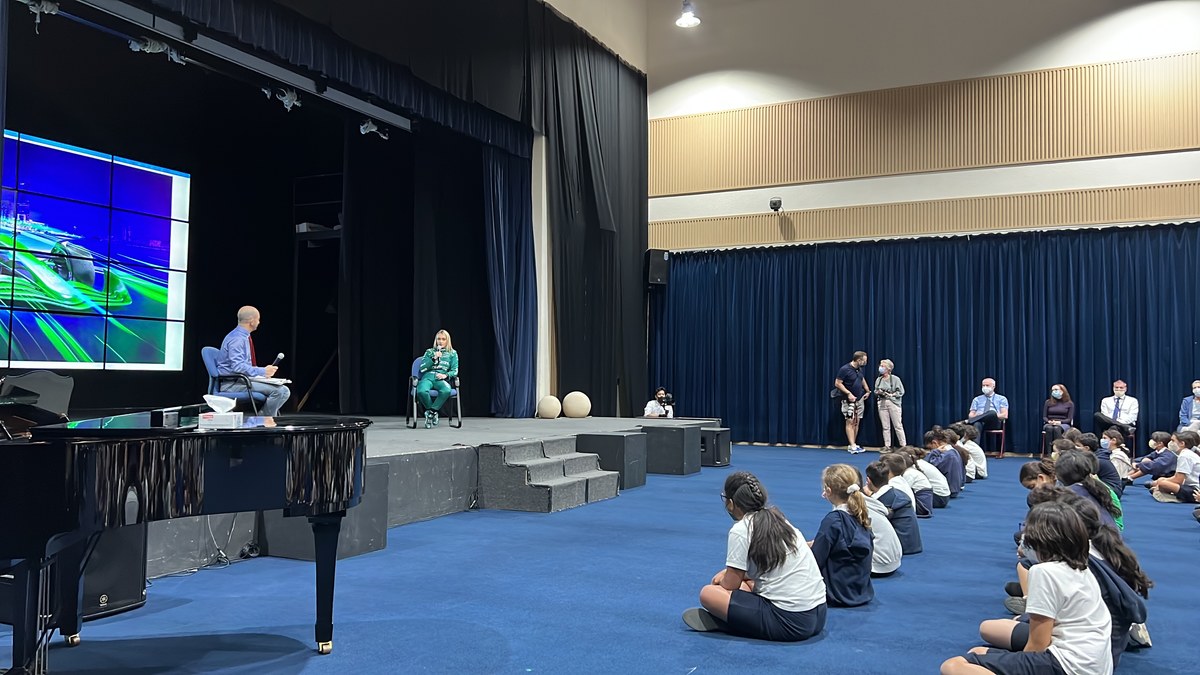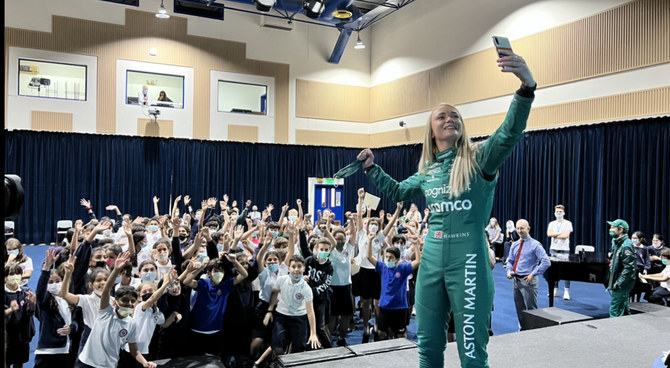Australia: When Domingos Soares Oliveira first walked through the doors at Al-Ittihad, on Oct. 1, 2023, the challenge in front of him was immense.
By that stage, the league had already attracted some of the world’s best talent as it began its rapid transformation. But the off-field operation had yet to catch up to the on-field capabilities. In some ways, the cart had been put before the horse.
The players had been signed without the requisite level of infrastructure, both physical and organisational, that they were accustomed to back in Europe. Quite hastily a new training headquarters was built at their training ground to bring the club up to the minimum standard required for an elite club in 2024.
Oliveira’s job as new CEO, therefore, was not only to transform the entire off-field operation, but to do so at a pace that allowed them to catch up with the ambition being shown on the pitch.
Everything was urgent. Everything was a priority. At the same time, he had to learn and adapt to his new surroundings and a new football culture, having spent his entire career in the more familiar surrounds of European football, spending close to 20 years with Portuguese giants Benfica before accepting the job with Al-Ittihad.
While the differences between the structures were vast, the passion for the game remained the same.
“There’re a lot of things that are different between clubs in Saudi and in our case, with Al-Ittihad, compared to Europe,” the 64-year-old told Arab News.
“But there’s something that is very similar, which is the passion from the fans. I’ve been in different parts of the globe, you have countries who are somehow trying to engage with the population around football, but there’s not a culture around football.
“But here, you have it, because you can see kids playing in the street in the morning or in the evening. You can see the passion in the stadiums. In our case, you have 60,000 people going to the matches. So, there’re a lot of similarities in the way people live football.”
But, as he explained, that is where the similarities end, which only underscores the size of the challenge that awaited Oliveira, one he described as the biggest of his career.
When he started, he estimates there were about 100 employees. Today he estimates that number at more than 300, which highlights the rapid rate of organisational growth that has taken place.
“The way clubs were organised,” he explained, “I don’t like to call it amateur, because, of course, coaches and players, have always been for the last, I would say, five decades, professionals. But in terms of organisation, it would rely very much on the people that were elected every year.
“So, there was not an organisation in the different departments, including football, the way we see in Europe with clubs organised in terms of having a proper scouting department, proper strategy and academies.
“When I joined the club, there was not a CFO (chief financial officer), there was not a sporting director, there was not a commercial director, there was not another sports manager.
“So the challenge since we saw the PIF (Public Investment Fund) acquisition of the four big clubs here in Saudi, the challenge was a big transformation from, let’s say, this way of organising things based on passion to something much more professional, which we have in place right now.”
He likened the job to that of a startup, albeit one with 97 years of history behind it.
“Following the PIF acquisition, in terms of strategy, in terms of value creation initiatives, in terms of defining KPIs, (key performance indicators) in terms of governance, in terms of compliance, we were a little bit like a startup,” he said.
“I always say we are a startup that is 97 years old, but we were like a startup. But inside an organisation like PIF, we need to prepare everything in terms of policies, in terms of procedures, in terms of strategy to fulfill the PIF requirements.
“We are not treated in a different way from a telecom company or from an airline company, the rules that we have to implement, the mechanisms that we have to implement, the reporting that we have to implement, the different committees we have inside the club, everything has to be done according to the PIF standards.”
Most urgent was an overhaul of the structures around the first team and the wider football department, which was made more challenging by the difficulties of the season, with the team struggling on the field, which led to Nuno Espirito Santo being replaced by Marcello Gallardo, who was then replaced at season’s end by Laurent Blanc.
But the structures that Oliveira had in mind were to exist regardless of who was in the hot seat; a system that remained consistent even were the club to change coaches.
The experienced Ramon Planes, a veteran of European football with the likes of Tottenham, Barcelona and Real Betis, was appointed as sporting director and given the remit of overseeing the entire football operation, from the first team to youth development and scouting.
Planes, Oliveira and the head coach, which this year is Frenchman Blanc, form the club’s sporting committee, with oversight of the club’s key football decisions, which include recruitment.
Where Planes led, others followed, with key personnel from Barcelona following him to Jeddah, including managing director, Franc Carbó, who was appointed head of strategy and football operations with Al-Ittihad.
Given Planes’ experience in Europe, particularly with Barcelona where he had an intimate insight into their famed youth development systems, it is no surprise to see Al-Ittihad adopt a similar strategy.
In the off-season the club targeted young Saudi players, completing the permanent moves for Faisal Al-Ghamdi (since loaned out to Beerschot) and Saad Al-Mousa, while their signing of Barcelona B star, Unai Hernandez, in January was a window into the future, one which is focused very much on youth development, according to Oliveira.
“We cannot only rely on players coming from abroad, because it’s not sustainable,” he said.
“It’s great that we can bring players like Karim Benzema or (N’Golo) Kante or Fabinho or Moussa Diaby or (Predrag) Rajkovic. We have very, very good international players (and) we want to keep some of them, but in terms of sustainability for the future, we need to develop the Saudi players.
“If we want to do something as a Kingdom, if we want to do something really relevant at the (2034) World Cup, it’s now that we have to start immediately developing this concept of having the best young Saudis trained the proper way.
“So, when you ask me about the long-term vision, that’s my long-term vision; it’s about having Saudi players that can feed the national team.”
Increasing on-field and off-field opportunities for those in Saudi Arabia is a key theme for Oliveira, who spoke frequently about his “Saudi-isation” push across the business.
“Part of my job is to increase the ‘Saudi-isation’ of the club,” he said.
“Our challenge at this stage in the football department is, in the coming two years, we need to increase the ‘Saudi-isation’ inside the football department, because at this stage, we rely very much on people coming from different countries.
“But we need to increase the Saudis, and we are doing this. We are bringing more Saudis in to train them so that they can run the football department in the future.”
Speaking of the future at Al-Ittihad, Oliveira, who cited increasing commercial revenues as a key area for improvement, would not put a limit on what was possible, but outlined more of his vision for Saudi Arabia’s oldest football club and again it came back to youth development.
“We need to develop the young Saudi players in a way that this club, in the future, can rely mostly on Saudi players,” he said.
“I do believe that in terms of commercial activities, in terms of TV rights, there will be a boost in terms of increasing the revenues that will allow the club to be financially sustainable. This will allow the club, in the next decade, to continue chasing the best players around the globe.
“But at the same time, we need Saudi players, different profiles in terms of Saudi players, and for that, you need to work with them at younger ages.
“Once they are under the Ittihad umbrella, we can take care of their education together with the parents. We can take care of their nutrition, we can take care of their physical development, mental development, competitive development. You can only do this if you have a very good youth strategy and very good people inside the youth department.
He continued: “I know that if we are able to put the best training facilities, considering that we’ll have the land for the new headquarters, together with a proper youth strategy, we will be able to have a gigantic centre of excellence here in Ittihad, which in my case, I deeply believe that we can fill the Saudi national team with probably the majority of their players, because we have the skills, we have the strategy, (and) we have the procedures to develop this strategy.
“If you ask me about 10 years from now, I want to develop the Saudi players the best way I can. And for that, I need facilities, I need a strategy, I need procedures, and I need something that we already have in Saudi, which is the raw material we have at the younger ages.
“We just need to take care of them and to develop them the right way.”





















